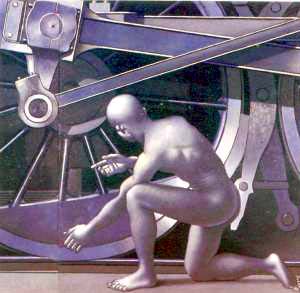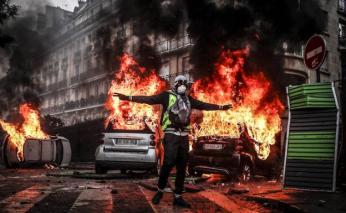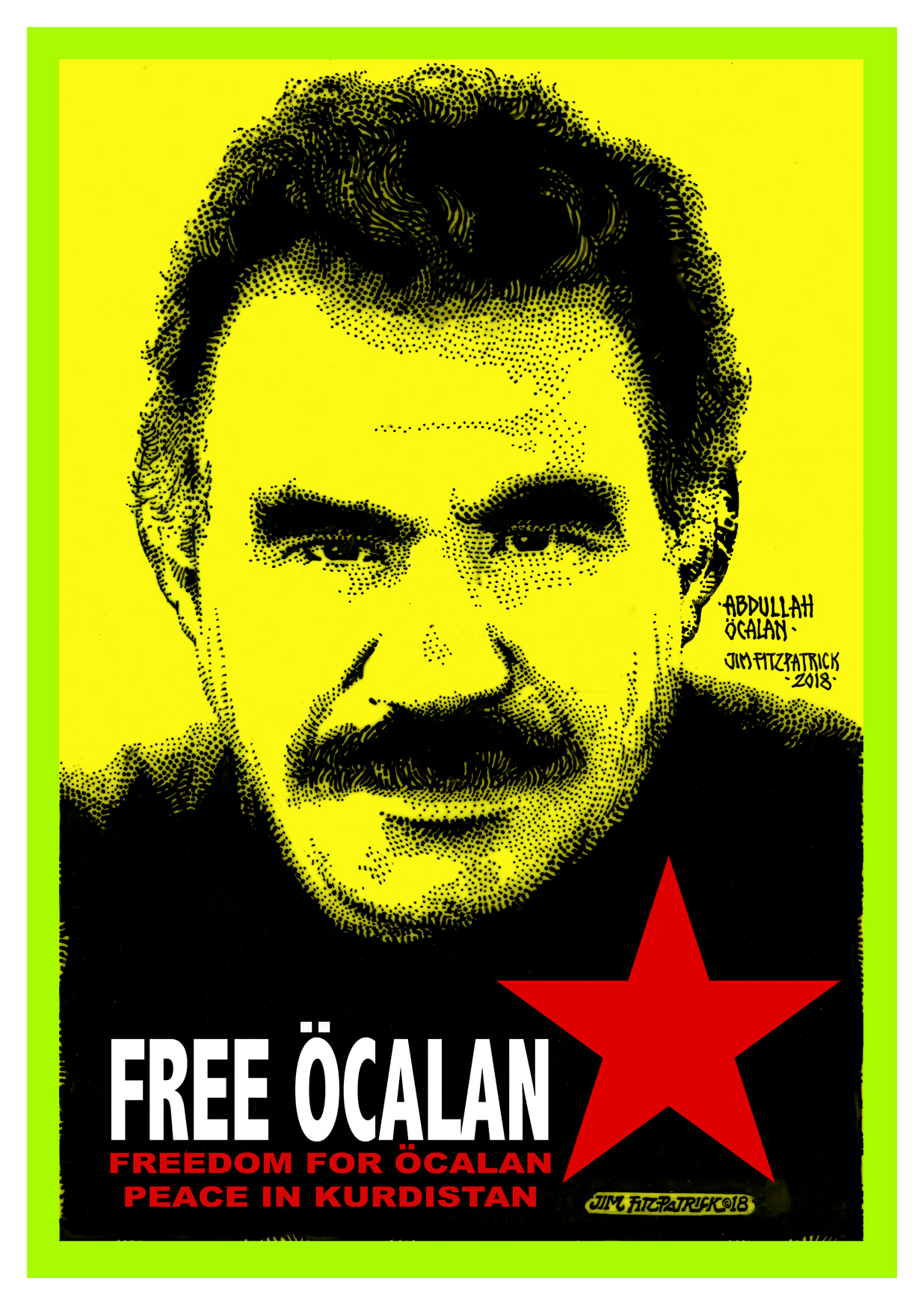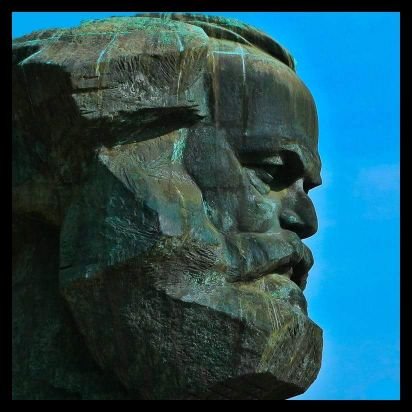Archivo
«El discreto encanto de la crisis económica»: Entrevista a Joseph Halevi
 Aunque la crisis ha puesto en cuestión el pensamiento económico dominante en los últimos 30 años, parece que ha faltado en la izquierda un debate adecuado que se concentrarse en los factores determinantes de la crisis y las perspectivas futuras.En ello ha jugado un cierto papel, como ha señalado il Manifiesto, el eliminar algunas de las claves de ciertas interpretaciones del presente, terminando por centrarse sólo en ciertos aspectos de la crisis (el tema del medio ambiente, los bienes comunes).Intentamos remover las cosas, titulando la iniciativa «El discreto encanto de la crisis económica», inspirándonos en un artículo de Fernando Vianello y Andrea Ginzburg, publicado en Rinascita, en 1973. Aunque el entrevistado tiene una perspectiva teórica diferente a la de los autores de dicho artículo, la intención es rendir homenaje a la tradición heterodoxa italiana (quién escribe esto se graduó en Módena, donde enseñan Vianello y Ginzburg), hoy marginada.Halevi es profesor de economía en la Universidad de Sydney y ha sido durante años un colaborador del Manifiesto.Sus investigaciones abarcan la economía política, las teorías del crecimiento y el comercio, Asia y el pensamiento post-keynesiano y marxista.Su libro más reciente es Modern Political Economics. Making Sense of the Post-2008 World (con Y. Varoufakis e N. Theocarakis). Entre sus artículos académicos mas recientes hay que destacar «Could be Raining: The European Crisis After the Great Recession», co-escrito con Richard Bellofiore. Leer más…
Aunque la crisis ha puesto en cuestión el pensamiento económico dominante en los últimos 30 años, parece que ha faltado en la izquierda un debate adecuado que se concentrarse en los factores determinantes de la crisis y las perspectivas futuras.En ello ha jugado un cierto papel, como ha señalado il Manifiesto, el eliminar algunas de las claves de ciertas interpretaciones del presente, terminando por centrarse sólo en ciertos aspectos de la crisis (el tema del medio ambiente, los bienes comunes).Intentamos remover las cosas, titulando la iniciativa «El discreto encanto de la crisis económica», inspirándonos en un artículo de Fernando Vianello y Andrea Ginzburg, publicado en Rinascita, en 1973. Aunque el entrevistado tiene una perspectiva teórica diferente a la de los autores de dicho artículo, la intención es rendir homenaje a la tradición heterodoxa italiana (quién escribe esto se graduó en Módena, donde enseñan Vianello y Ginzburg), hoy marginada.Halevi es profesor de economía en la Universidad de Sydney y ha sido durante años un colaborador del Manifiesto.Sus investigaciones abarcan la economía política, las teorías del crecimiento y el comercio, Asia y el pensamiento post-keynesiano y marxista.Su libro más reciente es Modern Political Economics. Making Sense of the Post-2008 World (con Y. Varoufakis e N. Theocarakis). Entre sus artículos académicos mas recientes hay que destacar «Could be Raining: The European Crisis After the Great Recession», co-escrito con Richard Bellofiore. Leer más…
«Economía y política en Sismondi»: Diego Guerrero
 Podría decirse que la figura de Sismondi, de una importancia y singularidad excepcionales en la historia del pensamiento económico, es, más que desconocida, conocida de forma muy fragmentaria y, en parte por ello, muy sesgada. Se le tiene por el primer (gran) teórico del subconsumo y/o de la sobreproducción, o uno de los primeros (al lado, detrás o delante de personajes tan desigualmente valorados en el terreno teórico y tan dispares en la esfera política como Robert Owen y Thomas Malthus), aunque debe admitirse que nunca ha estado del todo claro el significado exacto de esta teoría (o teorías) de la crisis económica capitalista.
Podría decirse que la figura de Sismondi, de una importancia y singularidad excepcionales en la historia del pensamiento económico, es, más que desconocida, conocida de forma muy fragmentaria y, en parte por ello, muy sesgada. Se le tiene por el primer (gran) teórico del subconsumo y/o de la sobreproducción, o uno de los primeros (al lado, detrás o delante de personajes tan desigualmente valorados en el terreno teórico y tan dispares en la esfera política como Robert Owen y Thomas Malthus), aunque debe admitirse que nunca ha estado del todo claro el significado exacto de esta teoría (o teorías) de la crisis económica capitalista.
Pero se lo considera unánimemente (casi solo) como un economista «moral», «humanista», «social», «romántico»… y otros adjetivos por el estilo, lo cual, junto al hecho de ser un intelectual de amplias miras, no especializado en la economía –escribió menos en este campo que sobre temas históricos y literarios–, más bien ha minado que realzado su prestigio como teórico. Además, precisamente su amplio reconocimiento como historiador ha facilitado que se le imputara un «método» analítico distinto del atribuido a la escuela clásica anglosajona (si bien mucho más a Ricardo que a Smith), y se tiende a ver en él, erróneamente, a un «historicista», empirista o inductivista, más que a un auténtico dominador de la teoría abstracta de los clásicos.
«The Marxist Theory of Overaccumulation and Crisis»: Simon Clarke
 In this paper I intend to contrast the ‘falling rate of prot’ crisis theories of the 1970s with the ‘underconsumptionism’ of the orthodox Marxist tradition. The central argument is that in rejecting traditional underconsumptionist theories of crisis contemporary Marxism has thrown the baby out with the bathwater, with unfortunate theoretical and political consequences. A more adequate critique of traditional underconsumptionism leads not to the falling rate of prot, but to a disproportionality theory of crisis, which follows the traditional theory in seeing crises not as epochal events but as expressions of the permanent tendencies of capitalist accumulation.
In this paper I intend to contrast the ‘falling rate of prot’ crisis theories of the 1970s with the ‘underconsumptionism’ of the orthodox Marxist tradition. The central argument is that in rejecting traditional underconsumptionist theories of crisis contemporary Marxism has thrown the baby out with the bathwater, with unfortunate theoretical and political consequences. A more adequate critique of traditional underconsumptionism leads not to the falling rate of prot, but to a disproportionality theory of crisis, which follows the traditional theory in seeing crises not as epochal events but as expressions of the permanent tendencies of capitalist accumulation.
The background to the paper is my recent book, Keynesianism, Monetarism and the Crisis of the State (Clarke, 1988a), in which analysed the development of capitalism on the basis of a version of the theory of overaccumulation and crisis which is proposed here. However in the book this theory is developed in relation to the historical analysis, without reference to either traditional or contemporary debates. The purpose of this paper is to draw out the theoretical signicance of the argument as the basis of a re- evaluation of the Marxist tradition. The issue is of the highest importance as erstwhile Marxists, in both East and West, fall victim once more to the ‘reformist illusion’ that the negative aspects of capitalism can be separated from the positive, that the dynamism of capitalism can be separated from its crisis tendencies, that capitalist prosperity can be separated from capitalist immiseration.
«Marx’s Theory of Crisis»: Simon Clarke
 Political Economy and the Necessity of Crisis
Political Economy and the Necessity of Crisis
With every boom the apologists for capitalism claim that the tendency to crisis that has plagued the capitalist system since its very beginnings has finally been overcome. When the boom breaks, economists fall over one another to provide particularistic explanations of the crash. The crisis of the early nineteen nineties was the result of the incautious lending of the nineteen eighties. The crisis of the early nineteen eighties was the result of excessive state spending in the late nineteen seventies. The crisis of the mid nineteen seventies was the result of the oil price hike and the inflationary financing of the Vietnam war … the crisis of the nineteen thirties was the result of inappropriate banking policies … … . Every crisis has a different cause, all of which boil down to human failure, none of which are attributed to the capitalist system itself.
And yet crises have recurred periodically for the past two hundred years. Bourgeois economists have to deny that crises are inherent in the social form of capitalist production, because the whole of economic theory is built on the premise that the capitalist system is self-regulating, the principal task of the theoretical economist being to identify the minimal conditions under which such self-regulation will be maintained, so that any breakdown will be identified as the result of exceptional deviations from the norm.
Leer más…
«En el origen de las crisis ¿sobreproducción o subconsumo?»: Louis Gill

Introducción.
I – Sobreacumulación del capital y sobreproducción de mercancías.
- Escasez de plusvalía y superabundancia de mercancías.
- ¿Rentabilidad deficiente o desequilibrio de mercado?
- Fenómeno permanente, el Subconsumo no puede explicar las crisis.
- Subconsumo y exceso de plusvalía: los precursores.
II – La naturaleza de la crisis actual.
III- ¿Relanzar la acumulación por el consumo?
- Gastos públicos improductivos para el capital.
- Un control necesario del Estado.
- La timidez de los planes de relanzamiento.


























